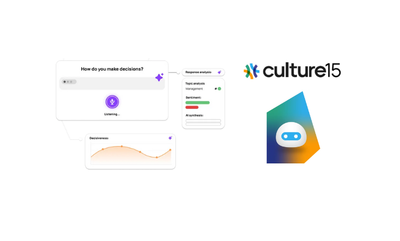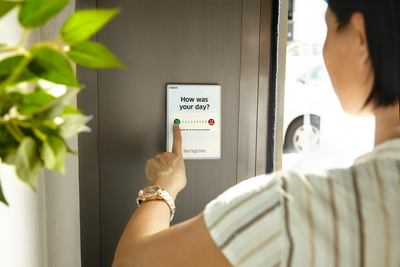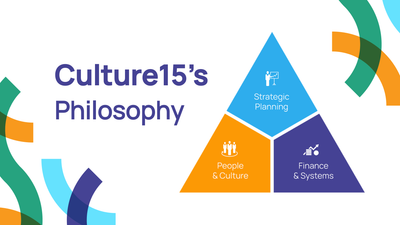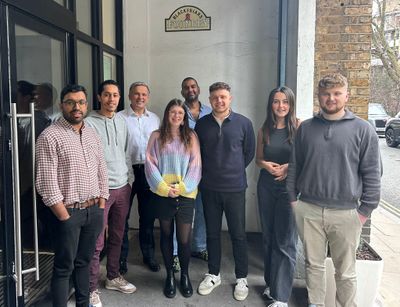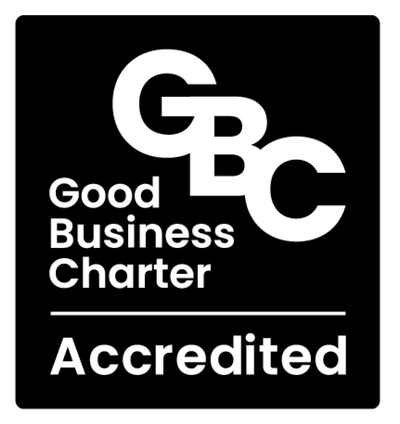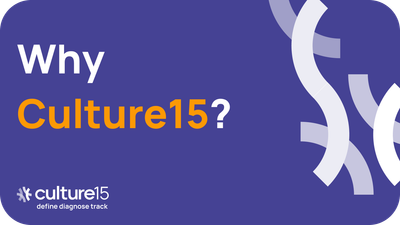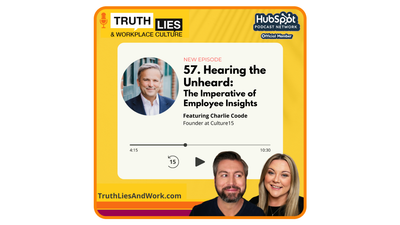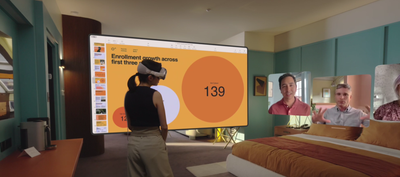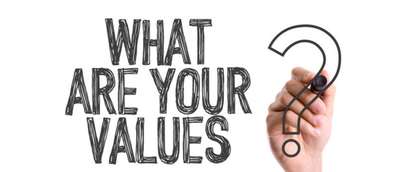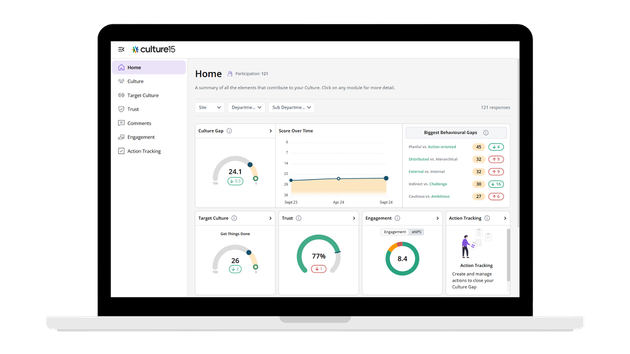
The Leading Culture Measurement Platform
From behaviours to business results: culture becomes measurable, manageable, and actionable.
Culture Analytics Platform to Understand Your Organisational Behaviour
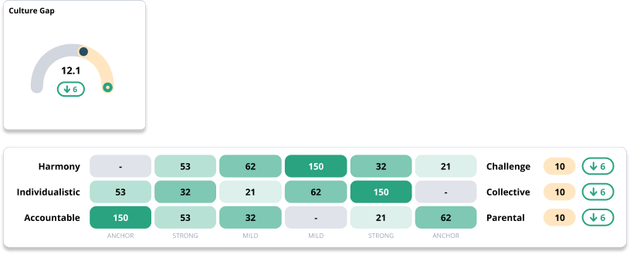
Business performance is dictated by the ability of an organisation to execute strategy, through culture. Equip senior leadership with a common language and set a target culture for your organisation. Diagnose your organisation’s current culture to measure and close the culture gap.
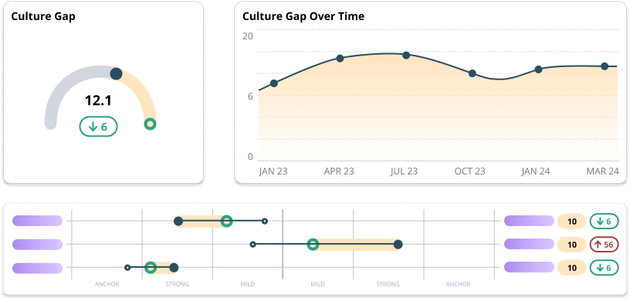
Culture is a key success factor in every business transformation. Segment and analyse behavioural data from across your organisation. Benchmark early and track progress towards aligning your organisation’s culture.

Align the business around a common set of beliefs, actions and behaviours – aggregated into capabilities (otherwise known as values or virtues of the organisation). Create your own or benchmark against the rest.

The perceived trust within the organisation is a critical output, or measure, of any organisation. Measure, segment and track trust over time.

Using AI the Culture15 platform can provide you with insight into the sentiment of employees based on the frequency of words and the sentiment behind them. As a result you are able quickly gain an understanding of the feelings of employees on particular topics.

See how engagement and sentiment change over time as the culture moves towards your target state. A single measurement platform for culture, trust, engagement and sentiment.
Measure Collective Behaviours Across 5 Key Culture Dimensions

People interactions
Do your people work together in a way that favours the collective or the individual? Is there a climate of harmony or challenge? Is there a strong sense of accountability? How parental is your culture?

Decision-making
Is your approach to decision-making largely discursive or decisive? Do you focus more on gaining consensus, or delivering results? How hierarchical is your organisation?

Execution
Does your culture have a predominantly fixed or learning mindset? How much effort do you expend on planning vs taking action? Is your interaction style more relational or empathetic?

Energy orientation
Is your culture ambitious or cautious? Does the focus of your team’s energy rest on internal or external forces? Do your teams tend to interact formally or informally?

Information flow
How transparent is your organisational culture? Does information typically flow-one way or many-to-many? Is communication structured or unstructured?
Boost Organisational Performance Through Behaviour Insights
Lasting change doesn’t come from vague values or culture talk, it comes from clear, shared behaviours.
Culture15 helps leaders focus on what’s observable and actionable, turning cultural insight and data into a measurable KPI to boost performance at scale.
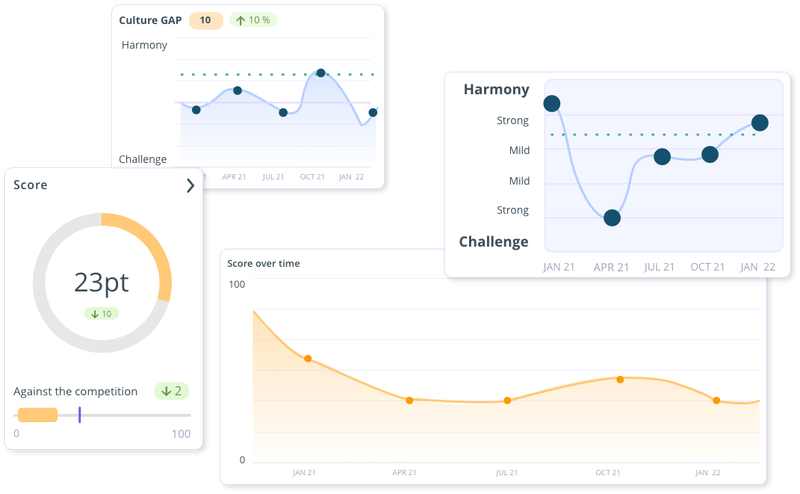
Our Data-Driven Culture Measurement Approach
Define
Identify and define the target behaviours that your organisation needs in order to execute your strategy and succeed
Diagnose
Diagnose your current culture and gain insight into the collective behaviours and ways of working that individuals experience daily
Track
Take ownership of your culture with continuous measurement and close the gap between current and target culture over time
Game-Changing Leaders Use Culture15 to Accelerate Change
When I joined as CEO, I needed a deep understanding of culture, quickly, to understand where to focus efforts for maximum impact. Culture15 did just that, giving us accelerated insight into behaviours to inform how we deliver our strategy.

Culture15 tangibly articulates our culture, providing a powerful lens through which to study the impact of our culture on success. The tool enabled us – even forced us – to focus on behaviours that were not conducive to the future that we wanted.

Culture15 provides a sound, comprehensive methodology for establishing where you are, where you want to be and what to focus on to close the gap. It illuminates strengths and challenges in a positive, constructive way… a wonderful vehicle to get staff buy-in.

Culture15 gives us sharp insights into our culture and a platform to deliver practical action.

Culture15 provided us with a shared vocabulary and understanding of culture, aligned with our strategy, and a clear, simple and powerful ‘hook’ off which to hang all of our multifarious cultural initiatives. Finally, we have a clear start- and end-point to our culture journey, and we will be able to track our progress towards our culture goals using the platform.
Having become an independent organisation recently, we recognised that the cultural transformation that we would need to undertake was a critical enabler if we were to deliver our ambitious strategy. It was really important therefore to find a mechanism that enabled us to really understand our current culture, and this is why we found the Culture15 tool invaluable. Not only did the tool allow us to understand our current state with its strengths and challenges, it also allowed us to align our Executive Team on the desired culture, enabling the conversation to map out the task ahead in moving from current to desired state.
Culture15 has been a profoundly important element of transforming the business for both the short term, but perhaps more importantly, the much longer term.

Culture15’s assistance and guidance throughout the process has offered clarity and objectivity in shaping our thinking and informing the SLT’s approach to incorporating Culture objectives into the Nine23 strategic plan

Culture15 are incredibly easy to work with, give you incredibly insightful data, and give you an incredibly consistent way for you to genuinely scale the culture in your organisation.
Culture15 offers the genuine ability to get true data to help us understand our current state our future state and also allowed us to blend other organisations cultures over the top of ours. It's pretty unique and I think the other part was that the Culture15 team really helped us understand the power of the tool and also the simplicity of how we could use it within our own organisation.
Culture15 are incredibly easy to work with, give you incredibly insightful data, and give you an incredibly consistent way for you to genuinely scale the culture in your organisation.

For me, Culture15 is the platform that allows me to measure how things get done in my business. What really stood out is the way it helped us define and select the anchor behaviours that matter most. This gave us a common language, which simplifies discussions and creates a much clearer focus. I was looking for something different, and there weren’t many solutions in the market that could do this, until I came across Culture15. It addressed so many of my needs: enabling us to choose the behaviours we wanted to see more of, making our transformation tangible and exclusive to our own priorities, and then allowing us to track how we’re progressing towards those aspirations.

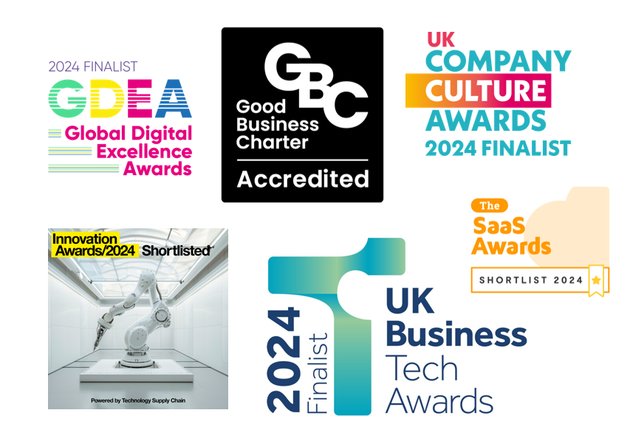
The Leading Platform for Culture Measurement & Analytics
At Culture15, we’re proud to be recognised as a driving force in culture measurement and innovation.
We’ve been shortlisted for SaaS Platform of the Year in the 2024 SaaS Awards, named a finalist for Tech Innovator of the Year, and accredited by the Good Business Charter for our commitment to people and planet. These recognitions highlight our mission to deliver world-class, AI-powered culture measurement and analytics and the impact we’re having in shaping the future of organisational performance.




























